(Note this is a work in progress and therefore always incomplete)
Regrettably many of the historical links listed below are broken after the Coast Guard changed their computer systems. The current Coast Guard history site is here. Some of the broken links may be found there.
The Long Blue Line blog series has been publishing Coast Guard history essays for over 15 years. To access hundreds of these service stories, visit the Coast Guard Historian’s Office’s Long Blue Line online archives, located here: THE LONG BLUE LINE (uscg.mil)
The Coast Guard Aviation Association has an excellent site devoted to the History of Coast Guard Aviation.
The Cutter
When she steams into the harbor
People don’t flock ’round like bees;
For she ain’t no grim destroyer,
No dark terror of the seas.
And there ain’t a load of romance
To the guy that doesn’t know,
In a ship that just saves vessels
When the icy northers blow.
But the men that sail the ocean
In a wormy, rotten craft,
When the sea ahead is mountains
With a hell-blown gale abaft;
When the mainmast cracks and topples,
And she’s lurching in the trough,
Them’s the guys that greet the “Cutter”
With the smiles that won’t come off.
When the old storm signal’s flyin’,
Every vessel seeks a lee,
“Cept the “Cutter”, which ups anchor
And goes ploughing out to sea,
when the hurricane’s a-blown’
From the banks of old Cape Cod
Oh, the “Cutter”, with her searchlight,
Seems the messenger of God.
– author unknown
——————————————————————————————————-
Coast Guard’s Song “Semper Paratus”
The Meaning of “Semper Paratus” (pdf)
The Long Blue Line: The Ensign—Coast Guard’s brand identity since 1799!
——————————————————————————————————-
Alexander Hamilton, Letter of Instructions to the Commanding Officers of the Revenue Cutters, 4 June 1791
They will always keep in mind that their countrymen are freemen, and, as such, are impatient of everything that bears the least mark of a domineering spirit. They will, therefore, refrain, with the most guarded circumspection, from whatever has the semblance of haughtiness, rudeness, or insult. If obstacles occur, they will remember that they are under the particular protection of the laws and that they can meet with nothing disagreeable in the execution of their duty which these will not severely reprehend. This reflection, and a regard to the good of the service, will prevent, at all times a spirit of irritation or resentment. They will endeavor to overcome difficulties, if any are experienced, by a cool and temperate perseverance in their duty–by address and moderation, rather than by vehemence or violence.
——————————————————————————————————-
“The Coast Guard We Once Knew”
——————————————————————————————————-
HEROES
The Book of Valor–List of awards for service in WWII
55 Coast Guardsmen Awarded the Navy Cross, with citations
Twelve CG recipients of the Silver Star, Vietnam War, with citations
Coast Guard Compass Series on the heroes Fast Response Cutters were named for
——————————————————————————————————-
The following was lifted whole cloth from the following site:http://www.flagguys.com/coastguard.html
Some definitions and thoughts on the meaning and importance of the US Coast Guard:
“The Coast Guard occupies a peculiar position among other branches of the Government, and necessarily so from the dual character of its work, which is both civil and military. Its organization, therefore, must be such as will best adapt it to the performance of both classes of duties, and as a civil organization would not suffice for the performance of military functions, the organization of the service must be and is by law military. More than 120 years of practical experience has demonstrated that it is by means of military drills, training, and discipline that the service is enabled to maintain that state of preparedness for the prompt performance of its most important civil duties, which are largely of an emergent nature.”
Captain Commandant Ellsworth P. Bertholf [as quoted in Robert Johnson, Guardians of the Sea (Annapolis: Naval Institute Press, 1990), p. 33.
Bertholf discussed the inherent differences between the Coast Guard and the Navy as well as indicating why the Coast Guard should still, however, remain a “military service”:
“. . .the fundamental reasons for the two services are diametrically opposed. The Navy exists for the sole purpose of keeping itself prepared for . . . war. Its usefulness to the Government is therefore to a large degree potential. If it performs in peace time any useful function not ultimately connected with the preparation for war, that is a by-product. On the other hand, the Coast Guard does not exist solely for the purpose of preparing for war. If it did there would be, of course, two navies–a large one and a small one, and that condition, I am sure you will agree, could not long exist. The Coast Guard exists for the particular and main purpose of performing duties which have no connection with a state of war, but which, on the contrary, are constantly necessary as peace functions. It is, of course, essentially an emergency service and it is organized along military lines because that sort of an organization best enables the Coast Guard to keep prepared as an emergency service, and by organization along military lines it is invaluable in time of war as an adjunct and auxiliary to the Navy. . . .while peace time usefulness is a by-product of the Navy, it is the war time usefulness that is a by-product of the Coast Guard.”
[As quoted in Robert Johnson, Guardians of the Sea, (Annapolis: Naval Institute Press, 1988), p. 59.]
What is the origin of the saying “You have to go out, but you do not have to come back”?
A: A letter to the editor of the old Coast Guard Magazine written by CBM Clarence P. Brady, USCG (Ret.) which was published in the March 1954 (page 2) issue, states that the first person to make this remark was Patrick Etheridge. Brady knew him when both were stationed at the Cape Hatteras LSS. Brady tells the story as follows:
“A ship was stranded off Cape Hatteras on the Diamond Shoals and one of the life saving crew reported the fact that this ship had run ashore on the dangerous shoals. The old skipper gave the command to man the lifeboat and one of the men shouted out that we might make it out to the wreck but we would never make it back. The old skipper looked around and said, ‘The Blue Book says we’ve got to go out and it doesn’t say a damn thing about having to come back.'”
Etheridge was not exaggerating. The Regulations of the Life-Saving Service of 1899, Article VI “Action at Wrecks,” section 252, page 58, state that:
“In attempting a rescue the keeper will select either the boat, breeches buoy, or life car, as in his judgment is best suited to effectively cope with the existing conditions. If the device first selected fails after such trial as satisfies him that no further attempt with it is feasible, he will resort to one of the others, and if that fails, then to the remaining one, and he will not desist from his efforts until by actual trial the impossibility of effecting a rescue is demonstrated. The statement of the keeper that he did not try to use the boat because the sea or surf was too heavy will not be accepted unless attempts to launch it were actually made and failed (underlining added), or unless the conformation of the coast–as bluffs, precipitous banks, etc.–is such as to unquestionable preclude the use of a boat.”
This section of the Regulations remained in force after the creation of the Coast Guard in 1915. The new Instructions for United States Coast Guard Stations, 1934 edition, copied Section 252 word for word as it appeared in 1899. [1934 Instructions for United States Coast Guard Stations, Paragraph 28, page 4].
——————————————————————————————————-
General Coast Guard History:
Naval History and Heritage Command
Timeline for evolution of the Coast Guard: http://www.uscg.mil/history/faqs/when.asp
The Long Blue Line: Coast Guard geography lesson – Districts Areas
Coast Guard Firsts, Lasts, and/or Record Setting Achievements
What Should Every Coast Guardsman Know About Our History?
The Long Blue Line: 150 years of Arctic operations and the Polar Security Cutter
US Coast Guard history and images
Fatal Coast Guard Aircraft Accidents
CG Aviation Casualties (CG History)
Always Ready: Women’s Crucial Role in the U.S. Coast Guard
The Long Blue Line: Native Americans in the Coast Guard—Semper Paratus since 1815
The Long Blue Line: Charleston—over 230 years of Coast Guard service and growth in South Carolina!
——————————————————————————————————-
Before there was a Coast Guard (prior to 1915):
“Prudence, Activity, Vigilance, and Strict Integrity are the desiderata,”Hopley Yeaton, the First Commissioned Sea-Going Officer of the Federal United States?–Bill Wells
July 7, 1798, the Quasi-War with France
The Long Blue Line: Combat Captain Hugh Campbell and the Cutter Eagle in the Quasi-War, Part One, Part Two
US Revenue Cutters Captured in the War of 1812, By William R. Wells
The Long Blue Line: William Ham, Cutter Jefferson, and the War of 1812
The Long Blue Line: Samuel Travis, Cutter Surveyor and the Battle of Gloucester Point
The Long Blue Line: Cutter Vigilant and Master John Cahoone
The Revenue Cutter Service: Nine Cutters and the War of 1812
By Scott E. Walden, September 21, 2008 (pdf)
The Long Blue Line: Revenue Cutter Alabama rescues 16 from human traffickers 200 years ago!
The Long Blue Line: Revenue Cutter Operations in the Mexican-American War
The Long Blue Line: C. W. Lawrence–Tamer of America’s Maritime Frontier and first PACAREA Cutter
Female Lighthouse Keepers
Revenue Cutter Ingham (1835)
The Long Blue Line: Captain Fraser—Coast Guard’s forgotten visionary and first commandant
The Long Blue Line: The Coast Guard fought in the Civil War 160 years ago!
U.S. Revenue Cutter Operations in the Civil War
The Coast Guard’s (Civil War) Ironclad
The Long Blue Line: Training Ship Chase–The First Coast Guard Academy
The Long Blue Line: 140 years ago–FRC hero William Chadwick and the fight for the George Taulane
The Long Blue Line: Unalaska’s lost cutterman Charles Moulthrope and the Commodore Perry
The Long Blue Line: Overland Expedition–saving lives above the Arctic Circle over 120 years ago!
The Long Blue Line: Hooper— Arctic pioneer and founder of the Bering Sea Patrol—a son’s remembrance
The “Coast Guard” in the Spanish American War
The Long Blue Line: McCulloch — fighting cutter of Manila Bay
“IN THE FACE OF THE MOST GALLING FIRE: The Revenue Cutter HUDSON at Cardenas Bay,” William R. Wells, II ©1997
The Long Blue Line: Revenue Cutter Hudson and the Battle of Cardenas Bay in the War with Spain
Commodore Frank Hamilton Newcomb: Seaman, Patriot, Lifesaver, Joint Warrior
Tribute to Hudson’s CO: USS Newcomb DD-586
The Long Blue Line: Harry Hamlet’s rescue of Navy convoy 100 years ago!
The Long Blue Line: Great Galveston Hurricane—Coast Guard’s first superstorm 120 years ago
The Long Blue Line: Cutter Golden Gate’s response to the San Francisco Earthquake 115 years ago!
The Long Blue Line: Rasmus (Midgett) gets the Gold for individual heroism in a hurricane rescue!
The Long Blue Line: Coast Guard pioneers the marine radio over 100 years ago!
Formation through WWII (1915-1945):
“U.S.C.G. Patrol Craft Built before WWII (Six-Bitters, WPC, WSC)” “…lists the 317 patrol craft built or acquired by the U.S. Coast Guard from its organization in 1915 through the start of WWII.”
The Long Blue Line: America’s first ice ships and icebreakers
The Long Blue Line: Station Nome—saving lives near the top of the world!
The “Black Tom Island” incident, Genesis of the US port security program (pdf)
The Coast Guard’s First Female Radio Electrician
The Long Blue Line: Ship of heroes—Seneca’s history-making rescue of World War I
The Long Blue Line: Satterlee—the last full measure of devotion
92nd Anniversary of the Loss of the Cutter Tampa with all Hands
Sept. 26, 1918, Cutter Tampa Lost with all Hands
September 1918, Seneca and Tampa
The Long Blue Line: 100 years ago–Coast Guard opens Air Station #1 at Morehead City
The Long Blue Line: Catching the rumrunners—Coast Guard adopts new technology during Prohibition
The Long Blue Line: Bootleggers beware–Prohibition Law Enforcement 100 years ago
The Long Blue Line: Clarence Samuels—the U.S. military’s Afro-Latino color barrier buster!
The Long Blue Line: Remembering centurium Alphonzo Barbour—eyewitness to African American history
The Long Blue Line: River Cutter Yacona Pioneers Desegregation in the Deep South
The Long Blue Line: Edward “Iceberg” Smith—Coast Guard’s admiral of the ice!
—
Busting Smugglers and Breaking Codes (during Prohibition)
Prohibition was a shooting war for the Coast Guard
A Footnote in CG History Sinking the Rum Runner I’m Alone
A Footnote in CG History from 1935-38
The Long Blue Line: Ohio River, 1937—Coast Guard’s largest flood response 85 years ago!
“Get in the boat; we have a job to do!” — BOSN Wilson motors into the Great New England Hurricane
The Long Blue Line: Hamlet—Revenue Cutterman, Hero, Coast Guard Commandant, author of “The Creed”
The Long Blue line: Greenland—Coast Guard’s Arctic combat zone of World War II, 1940-41
The Long Blue Line: Danmark—the friend-ship between Denmark and the Coast Guard
The Coast Guard at War, Greenland Patrol
The Coast Guard’s World War II Crucible
The Coast Guard at War, Transports & Escorts
The Coast Guard in the WWII Battle of the Atlantic
The Long Blue Line: Chief Canine Sinbad—the Coast Guard’s Four-Legged Sailor
The Long Blue Line: McCormick & Thetis—the Coast Guard’s forgotten sub-killers
The Long Blue Line: Waesche – the Coast Guard’s wartime leader, second founding father
The Long Blue Line: Master Chief Bell—minority pioneer, Pacific War hero and FRC namesake
The Long Blue Line: Lt Crotty and the Battle for Corregidor
The Long Blue Line: Tulagi’s Coxswains–the services 1st Silver Star recipients
The Long Blue Line: The “Green Hell” of Guadalcanal 80 years ago!
Gold Dust Twins: The Two Coast Guardsmen Who Saved Chesty Puller’s Marines on Guadalcanal
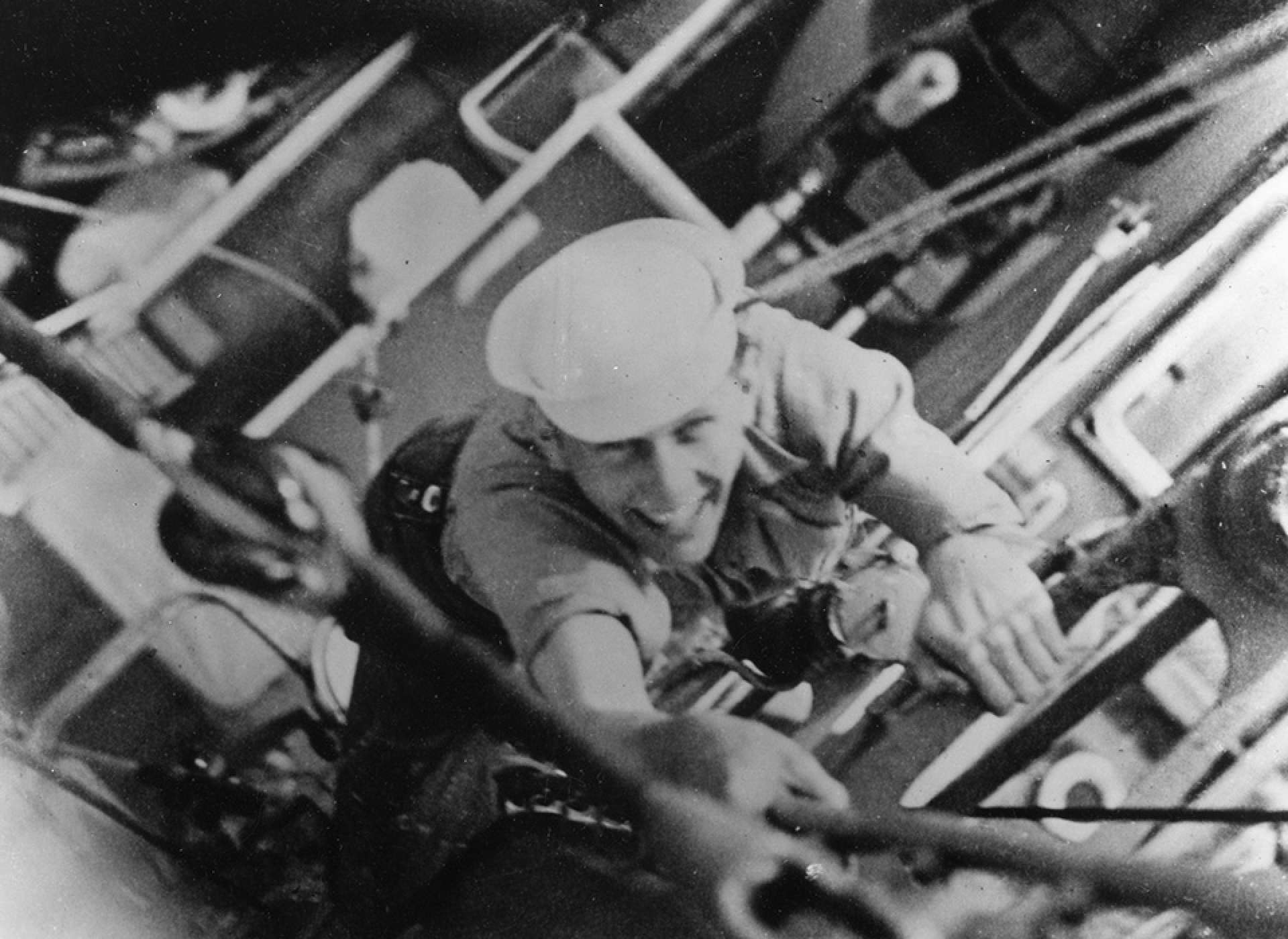
“The Marines were being driven back to the beach and many did not have radios to request assistance. A single “HELP” spelled out in T-shirts on the ridge near the beach sent a loud and clear signal to those looking on.”
“This man is the only US Coast Guard recipient of the Medal of Honor”
The Long Blue Line: Coxswain Canavan’s impossible story of survival at Guadalcanal 80 years ago
Joseph Toahty, Pawnee Warrior Of Guadalcanal
Rollin Fritch — Silver Star hero of Attack Transport Callaway
Loss of USS Serpens (AK-97), Jan. 29, 1945
The Long Blue Line: “Selfless devotion to duty”—Seaman Scheuerman and the bloody landings at Salerno
Coast Guard and CG Manned Vessels Lost During World War II
USS Sea Cloud, WPG 284; IX-99; 1942 (first racially integrated ship in the Coast Guard)
USS Sea Cloud, IX-99, Racial Integration for Naval Efficiency, by Cdr. Carlton Skinner, USCGR (ret.)
The Top-Secret Story of Coast Guard Code Breaking
The Long Blue Line: Mrs. Friedman–the Coast Guard’s “Cryptologist-in-Charge” and NSC namesake
327s, Why Were They So Successful?
The Long Blue Line: Louis Etheridge—Gun captain and African-American war hero
The Long Blue Line: The attack on Pearl Harbor—“a date that will live in infamy”
The Long Blue Line: Pritchard and Bottoms, Last of the Coast Guard’s MIAs
The Long Blue Line: Jack Cullen, Nazi invaders and founding of the Coast Guard Beach Patrol
The Coast Guard and the North Atlantic Campaign (pdf)
The Long Blue Line: Gun captain and African-American war hero Louis Etheridge
Pritchard and Bottoms–Last of the Coast Guard’s MIA’s
The Long Blue Line: Benjamin Bottoms—Arctic aviator, wartime hero served with Lt. John Prichard
The Battle for Convoy ON-166, 25 February 1943
USCGC Spencer (WPG/WAGC/WHEC-36) Legacy
A Nautical Knife Fight –USCGC Spencer vs U-175
Navy Accepts Their First Helicopter, 16 Oct. 1943 (Coast Guard Pilot)
The Long Blue Line: A wartime rescue by Cutter Argo 75 years ago
The Long Blue Line: USS Wakefield—the Coast Guard’s “B & L Ferry” 75 years ago
The War in the Pacific, The Coast Guard During World War II
Coast Guard Manned Frigates in WWII
1943: The Development of Air-Sea Rescue
The Long Blue Line: Joseph Tezanos—wartime lifesaver, Hispanic-American trailblazer and FRC namesake
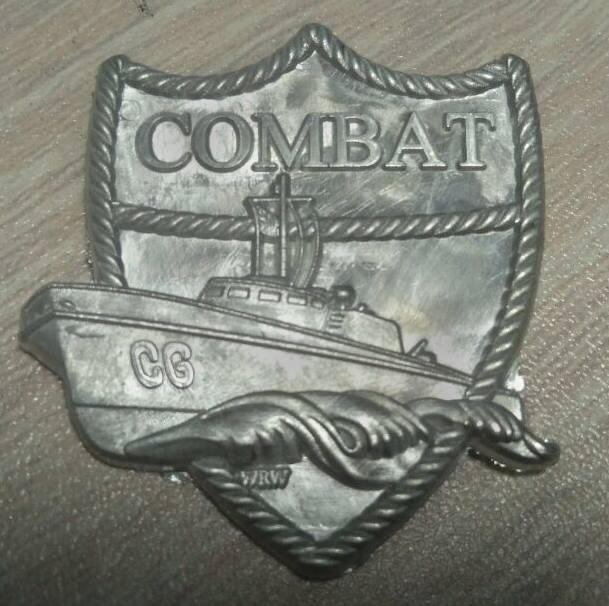
U.S. Coast Guard Rescue Flotilla One at Normandy
Saluting Our Coast Guard Shipmates – Flotilla Ten at Normandy and the loss of LCIs 85, 91, 92 and 93
The Long Blue Line: “Into the Jaws of Death”—SM2 John Roberts and LCI-93 at Omaha Beach
The Long Blue line: “Lucky Ox”—surviving the killing fields of D-Day
LCI(L) 85: The Four- Leaf Clover
The Long Blue Line: Seaman First Class Fletch Burton—he went in harm’s way so others might live free
Operation Dragoon, the Invasion of Southern France, 15 Aug. 1944
The Great Atlantic Hurricane, Sept. 1944
Joe Gerczak’s service and sacrifice from Philly to New Guinea
Fighting Coast Guard at Iwo Jima
The Long Blue Line: Leyte liberation–Merry Christmas from the General and the dead of LST-66
Loss of USS Serpens (AK-97), Jan. 29, 1945
http://coastguard.dodlive.mil/2018/01/the-long-blue-line-uss-serpens-the-coast-guards-greatest-loss/

Two “Fletcher” class destroyers (left) and a “Cleveland” class light cruiser (right) standing off Corregidor Island as it is bombarded by ships and aircraft, prior to landings there, 16 February 1945. Other ship present (2nd from right) is force flagship USCGC INGHAM (WAGC-35). National Archives #80-G-273318
The Long Blue Line: 75 years ago—the Coast Guard lands on bloody Iwo
The Long Blue Line: BM1 Sutphin, Attack Transport Wood and bloody Saipan
18 March, 1945, CG Manned DEs Sink U866
A Coast Guard Woman of World War II
U-boat Sunk by Coast Guard Escort Division Found off Nantucket
Video, Coast Guard Convoy Operations
Leslie B. Tollaksen, USCGC Chelan, USS Moberley, and the Last Battle in the Atlantic, May 5/6, 1945
The Long Blue Line: Coast Guardsman Eliot Winslow, Nazi Johann-Heinrich Fehler and the Surrender of U-234, part 1, part 2
The Long Blue Line: The last Nazi–U-234 surrenders 75 years ago
History of Convoy and Routing (1945)
The Long Blue Line: A Coast Guard scientist, maritime war hero, and polar icebreaker skipper
———————————————————————————–
After WWII (1945-present):
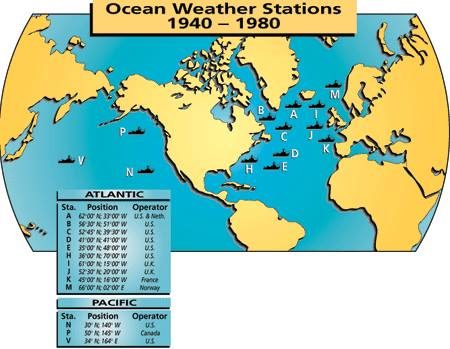
18 September 1946, Crash of Sabina DC-4 and Rescue of Survivors
The Long Blue Line: Cold War Cutter Courier—“Valiant fighter in the cause of freedom”
The Long Blue Line: Ocean Station–Coast Guard’s support for the Korean War 70 years ago
Bernard “Bernie” Webber and the greatest smallboat rescue in Coast Guard history
The Long Blue Line: Coast Guard’s mission to the tropics–LORAN aviation in the Philippines
The Long Blue Line: First U.S. transit of the Northwest Passage — 1957
Video, “USCG Alaska Patrol(1958)”
The Long Blue Line: Lest we forget—the Triumph-Mermaid tragedy 60 years ago
1962: The Cuban Missile Crisis
The Coast Guard Shipbuilding Program, 1964
The Long Blue Line: “Tip of the Spear”—Coast Guard joins the fight in Vietnam
The U. S Coast Guard in Vietnam: Achieving Success in a Difficult War
The Coast Guard Flies in Vietnam
Market Time, Naval History and Heritage Command
The Long Blue Line: 55 years ago, the Coast Guard joined the fight in Vietnam
The Long Blue Line: The Ironwood—wartime ATON in Vietnam
Coast Guard Aviation in Vietnam
“Market Time” Naval History and Heritage Command
USCGC Campbell’s Vietnam Cruise Book
USCGC Owasco’s Vietnam Cruise Book, 1968/69
WAR IN THE SHALLOWS, U.S. NAVY COASTAL AND RIVERINE WARFARE IN
VIETNAM, 1965–1968
The Long Blue Line: “American Healer”—A Coast Guard Corpsman in Vietnam 50 years ago

Coast Guard 82 foot WPB and Navy Swift Boat on River in Vietnam
The United States Coast Guard in South East Asia During the Vietnam Conflict, by Eugene N. Tulich, USCG

North Vietnamese 100′ Trawler burns on a South Vietnamese beach after being forced ashore by USCGC POINT LEAGUE, on 20 June 1966. It was carrying an estimated 250 tons of supplies for the Viet Cong. USN 1116663
Vietnam, Two short histories of Coast Guard Operations:
The Brown Water Navy in Vietnam
Point Welcome, Attack by “friendly” aircraft
Coast Guard Aviators in Vietnam
The Long Blue Line: Coast Guard Small Boat Ops in Vietnam
Mk 2 Mod 0 and Mod 1 .50 Caliber MG/81 mm Mortar
Memorial Service for Pt. Welcome Hero and Survivor BMC Patterson
Shades of Douglas Munro-22 Jan. 1969
“The Long Blue Line: Villarreal – Silver Star savior of Vietnam 55 years ago” –MyCG
All CG Vietnam Vets, Presumed Exposed to Agent Orange
1980 – Mariel Boatlift -U. S. Coast Guard Operations During the 1980 Cuban Exodus:
Passenger Vessel Prinsendam Fire/Sinking–520 passengers and crew rescued without loss of life.
The Long Blue Line: Prinsendam—Coast Guard’s “Miracle Rescue” over 40 years ago!
The Long Blue Line: OCS and female trailblazers in the Coast Guard’s officer corps, 1973-2010
The Long Blue Line: Operation “Jester”–Coast Guard counterdrug ops in Peru
The Long Blue Line: Dauntless and the Origins of Drug Interdiction
1998 – Drug interdiction: Operation FRONTIER LANCE; Operation NEW FRONTIER and Airborne Use of Force
The Long Blue Line: Operation “Jester”–Coast Guard counterdrug ops in Peru
The Long Blue Line: Coast Guard Operations During the Persian Gulf War
The Long Blue Line: Coast Guard PSUs—Established 30 years ago for the Persian Gulf War!
The Long Blue Line: The Persian Gulf War—a female officer’s experience 30 years ago
How We Got in this Mess, a Short History of CG Shipbuilding
2003 – Coast Guard Units Deploy During the Iraq War
Guardians of the Gulf: A History of Coast Guard Combat Operations in Support of Operation Iraqi Freedom, 2002-2004 (pdf)
William H. Thiesen, PhD, June 2009
The Long Blue Line: Hurricane Katrina and the Coast Guard sets records 15 year ago!
PATFORSWA: Guardians of the Arabian Gulf, by Lt. Eric D. Nielsen
The Long Blue Line: PATFORSWA–Largest Coast Guard Unit Outside the US
The Long Blue Line – 20 Years OIF: Coast Guard combat operations in Operation Iraqi Freedom
——————————–
The Dutch in the Medway–Rudyard Kipling
If wars were won by feasting, 0r victory by song, Or safety found in sleeping sound, How England would be strong! But honour and dominion Are not maintained so. They're only got by sword and shot, And this the Dutchmen know! The moneys that should feed us You spend on your delight, How can you then have sailor-men To aid you in your fight? Our fish and cheese are rotten, Which makes the scurvy grow-- We cannot serve you if we starve, And this the Dutchmen know! Our ships in every harbour Be neither whole nor sound, And, when we seek to mend a leak, No oakum can be found; Or, if it is, the caulkers, And carpenters also, For lack of pay have gone away, And this the Dutchmen know! Mere powder, guns, and bullets, We scarce can get at all; Their price was spent in merriment And revel at Whitehall, While we in tattered doublets From ship to ship must row, Beseeching friends for odds and ends-- And this the Dutchmen know! No King will heed our warnings, No Court will pay our claims-- Our King and Court for their disport Do sell the very Thames! For, now De Ruyter's topsails Off naked Chatham show, We dare not meet him with our fleet-- And this the Dutchmen know!
|
“Waters Deep” by Eileen Mahoney “In Ocean waves no poppies blow For when they lived They choose the sea.” Lt Collins’ Flag Day SpeechFrom the movie, “The Sand Pebbles,” Richard Crenna as Lt Collins gives The Flag Day Speech: “Today we begin cruising to show the flag on Tungting Lake and the Hunan Rivers. I want all honors rendered smartly. At home in America, when today reaches them it will be Flag Day. For us who wear the uniform every day is Flag Day. It is said that there will be no more wars. We must pretend to believe that. But when war comes, it is we who will take the first shock, and buy time with our lives. It is we who keep the Faith…We serve the Flag. The trade we all follow is the give and take of death. It is for that purpose that the people of America maintain us. And anyone of us who believes he has a job like any other, for which he draws a money wage, is a thief of the food he eats, and a trespasser in the bunk in which he lies down to sleep.” |
For ne’er can sailor salty be Until he sails the Bering Sea. And views Alaska’s dreary shore And fills himself with Arctic lore. Columbus and Balboa too, With Nelson form a salty crew, But they are fresh to you and me— They never sailed the Bering Sea So when you boast of fiercest gale, That ever ocean you did sail, You can not salty sailor be Until you cruise the Bering Sea –Trident Society, The Book of Navy Songs |


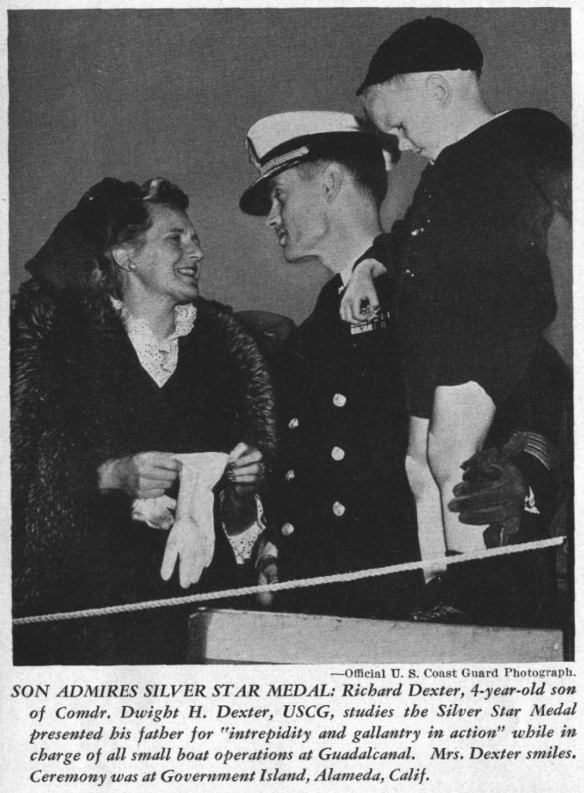
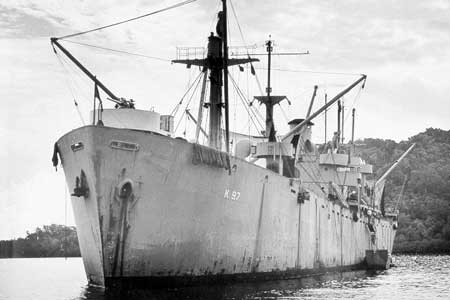
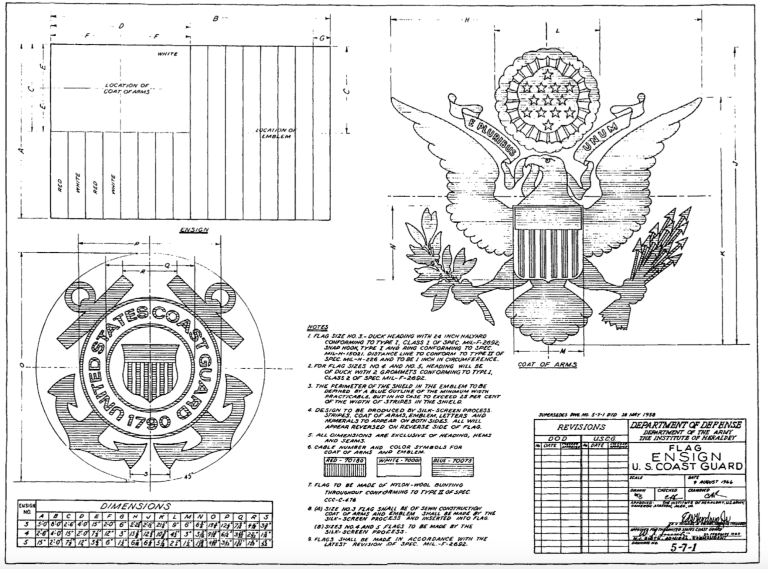
Pingback: Happy Coast Guard Day | Chuck Hill's CG Blog
I see Scott E. Walden in his September 21, 2008 paper ignored earlier research. He took the low hanging fruit and repeated many of the same mistakes made in more contemporary books and articles. Such as the James Madison did not capture THE Snow but rather captured A snow named Shamrock. For a better look at the cutters in the War of 1812 see my piece published in The American Neptune. http://www.berthdeck.com/Articles/War_of_1812_cutters.pdf
While the US had some victories in the War of 1812, it really was a disaster for US Maritime interests. Once the Royal Navy started paying serious attention, they essentially blockaded the US coast.
Bill, I am adding your article to the list.
Pingback: National Vietnam War Veterans Recognition Day | Chuck Hill's CG Blog
Pingback: Coast Guard History Coming Back On-Line | Chuck Hill's CG Blog
Pingback: What Has Happened to Coast Guard Online History? | Chuck Hill's CG Blog
Pingback: “The Long Blue line: Greenland—Coast Guard’s Arctic combat zone of World War II, 1940-41” –MyCG | Chuck Hill's CG Blog
Pingback: CAPT Joseph L. Crowe Jr., USCG, a Tribute | Chuck Hill's CG Blog